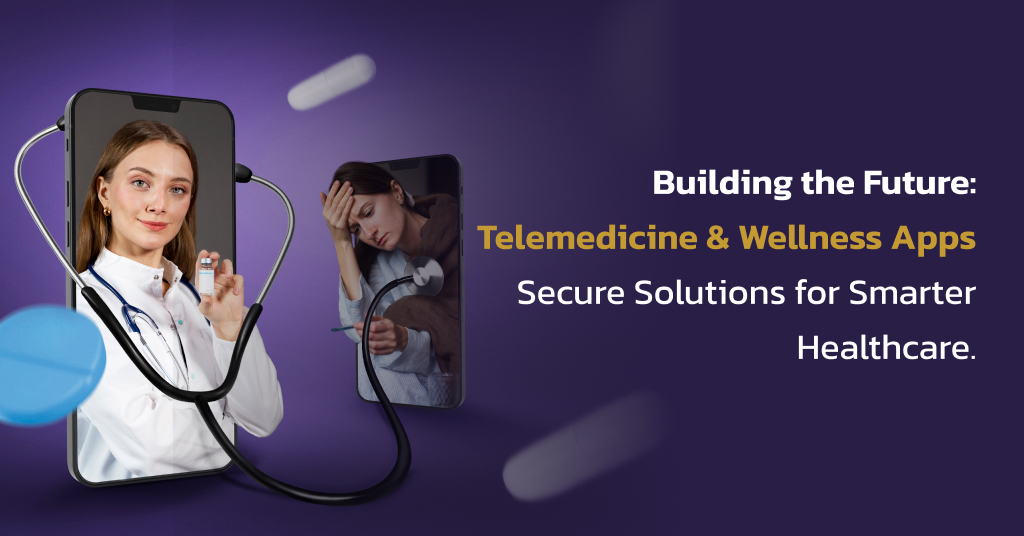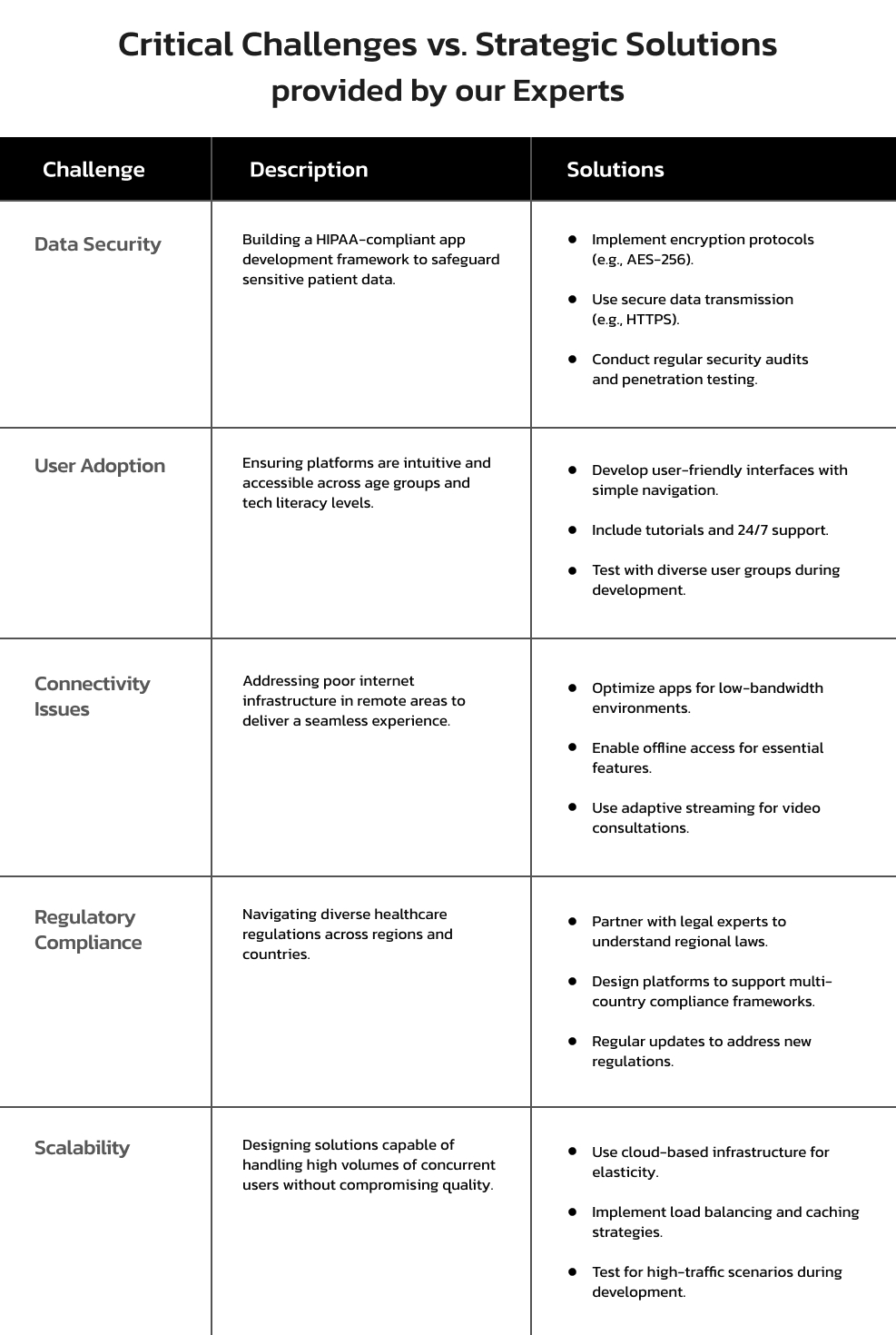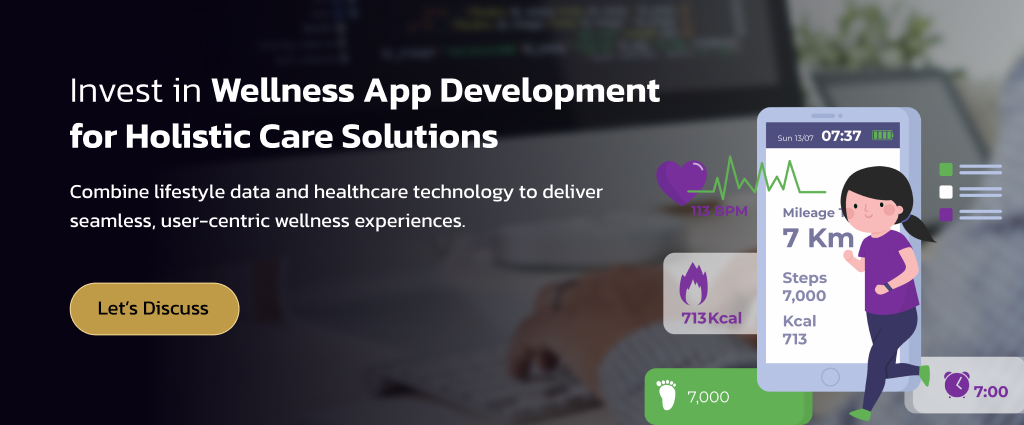
In an age where technology permeates every facet of life, healthcare software development services are the unsung heroes driving a silent revolution. We talk a lot about the introduction of ChatGPT, AI & ML in our everyday life (work+personal). Often, we criticize these technologies too, but we hardly talk about the real benefits of these technologies in defining life quality. Making healthcare mostly the least favored topic of conversation, as it is associated with suffering and illness. But healthcare is not limited to hospital emergencies only; it goes beyond, and so do the advanced technologies in healthcare. Today, preventive healthcare solutions are pushing into the mainstream, making way for wellness apps and platforms.
From enabling remote consultations to customizing diet and fitness programs as per individual’s preferences and medical history to optimizing hospital/day-care/clinic workflows, these solutions hold the potential to transform lives. Here’s how:
- Importance of Technology in Modern Healthcare
- Comprehensive Healthcare with Telemedicine
- Personalized Diet and Fitness Programs
- Addressing Mental Health and Burnout
- Bridging Geographical Gaps with Telemedicine Apps
- Streamlining Hospital Operations with Software Solutions
- Accelerating Diagnostics with AI Integration
- Ensuring Security and Compliance
- Telemedicine: Transforming Access to Healthcare
- Wellness Apps Making Preventive Healthcare Accessible
- Emerging Technologies Shaping Healthcare Applications
- Future of Healthcare Apps
- Conclusion
Importance of Technology in Modern Healthcare
Comprehensive Healthcare with Telemedicine
- Holistic Care: Telemedicine apps go beyond communication, acting as gateways to integrated healthcare. Features like medication reminders and real-time wearable device data help patients actively manage their health.
- Real-world Impact: These tools empower users with proactive care, ensuring better adherence to treatments and overall health improvement.
Personalized Diet and Fitness Programs
- Individualized Plans: Leveraging wearable data and AI, telemedicine and wellness apps create tailored diet and fitness recommendations based on medical history and personal preferences.
- Real-world Example: A cardiac patient can use an app to dynamically adjust their meal plans and fitness routines, aiding recovery and maintaining long-term health goals.
Addressing Mental Health and Burnout
- Supportive Tools: Many apps integrate mental health modules, offering guided meditations, mood tracking, and access to virtual counselors.
- Real-world Impact: These integrations have provided critical support during crises, reducing mental fatigue and fostering well-being through accessible digital resources.
Bridging Geographical Gaps with Telemedicine Apps
- Picture a family in a remote village with limited access to specialists. Through telemedicine app development, they can consult with leading doctors without stepping out of their homes.
- Real-world Impact: During the COVID-19 pandemic, telemedicine apps ensured patients could continue consultations while maintaining social distancing. Chronic disease management, prenatal care, and even post-operative checkups became accessible to those in underserved areas.
Streamlining Hospital Operations with Software Solutions
- Behind the scenes, healthcare software development services are revolutionizing workflows in hospitals and clinics. Scheduling appointments, managing medical records, and enabling real-time patient tracking are now seamless.
- Real-world Impact: Hospitals have reported significant reductions in wait times and administrative errors. For example, AI-driven appointment systems can dynamically assign patients to available slots, improving patient satisfaction and resource utilization.
Accelerating Diagnostics with AI Integration
- Advanced healthcare software development services integrate AI and machine learning to provide faster, more accurate diagnostics.
- Real-world Impact: AI algorithms in telemedicine apps can analyze symptoms and suggest potential diagnoses before the patient meets a doctor. For example, many apps use intelligent models to assist in early disease detection.
Ensuring Security and Compliance
- The trust patients place in digital healthcare solutions depends on the strength of their data protection. Healthcare software development services ensure compliance with regulations like HIPAA and GDPR, safeguarding sensitive patient information.
- Real-world Impact: Secure telemedicine platforms with end-to-end encryption have made online consultations a trusted option for millions worldwide.
Telemedicine: Transforming Access to Healthcare
Telemedicine has emerged as a transformative force in modern healthcare, enabling seamless connectivity between patients and providers. By leveraging the latest in healthcare technology, it has not only bridged geographical and economic gaps but also enhanced the overall quality of care. A telemedicine app development company plays a critical role in creating robust platforms that cater to evolving healthcare needs while adhering to regulatory standards like HIPAA compliance.
What is Telemedicine?
Telemedicine is the use of technology to deliver healthcare services remotely. It involves consultations, diagnostics, and follow-ups through virtual platforms, reducing the need for physical visits. With the help of healthcare app development services, these platforms ensure secure communication, user-friendly interfaces, and real-time data sharing, revolutionizing the patient experience.
Impact of Telemedicine on Patient Care
1. Enhanced Accessibility
- Breaking Barriers: Patients in rural or underserved areas can connect with specialists without the burden of travel.
- Real-Life Scenario: A telemedicine app allowed a stroke patient in a remote village to receive immediate virtual consultation, leading to timely intervention and saving lives.
2. Cost-Effective Consultations
- Affordable Care: Virtual visits eliminate travel costs, reduce time off work, and often cost less than in-person appointments.
- Example: Platforms developed by a leading telemedicine app development company provide tiered subscription models, making healthcare more accessible to low-income families.
3. Real-Time Monitoring and Diagnosis
- Integrated Wearables: Telemedicine apps equipped with IoT devices enable continuous health monitoring, particularly for chronic illnesses.
- Case Study: A diabetic patient uses a HIPAA-compliant telemedicine app to share glucose levels with their physician in real time, preventing complications.
Key Features of Telemedicine Apps
- HIPAA Compliance: Robust data security protocols to protect patient information.
- Video and Audio Consultation: High-quality virtual appointments accessible on various devices.
- Real-Time Notifications: Appointment reminders, prescription alerts, and health tracking prompts.
- Electronic Health Records (EHR) Integration: Centralized access to patient histories for informed decision-making.
- Multi-Payment Support: Secure payment gateways for a seamless transaction experience.
Role of Developers in Telemedicine App Development
Developers are instrumental in shaping telemedicine solutions, ensuring they meet the complex needs of patients and providers.
1. Ensuring Compliance
- Building HIPAA-compliant frameworks to safeguard sensitive patient data.
- Conducting regular audits to ensure adherence to regulatory standards.
2. Designing Custom Features
- Crafting multi-language support, AI-driven chatbots, and diagnostic tools tailored to specific demographics.
- Developing adaptive interfaces to cater to patients of varying technical proficiencies.
3. Building Scalable Platforms
- Ensuring telemedicine solutions can scale with user growth while maintaining seamless functionality.
- Implementing cloud-based infrastructure for scalability and uninterrupted service.
Reimagine Healthcare Accessibility with Telemedicine
Develop innovative platforms that connect patients and providers anytime, anywhere.
Wellness Apps Making Preventive Healthcare Accessible
With the increasing demand for personalized solutions, healthcare companies are leveraging app development services to create feature-rich, secure, and user-friendly wellness apps. Here’s a detailed overview of their impact, features, and development.
Overview of Wellness Apps
Wellness apps are digital tools designed to support users in maintaining and improving their health. From tracking physical activity to managing mental health and diet, these apps bridge the gap between preventive care and healthcare systems. Developers play a vital role in this ecosystem, ensuring seamless functionality and integration with existing health technologies like telemedicine app development.
Types of Wellness Apps
1. Fitness Tracking Apps
- Track steps, monitor heart rates, and provide workout plans.
- Example: An app integrating wearables like smartwatches to give real-time performance feedback.
2. Mental Health Support Apps
- Offer guided meditations, mood tracking, and virtual counseling.
- Example: Apps combining mental well-being with mindfulness practices.
3. Nutrition and Diet Management Apps
- Provide meal planning, calorie tracking, and dietary recommendations.
- Example: AI-powered apps analyze users’ eating patterns and suggest healthier choices.
By investing in telemedicine app development, companies can complement virtual consultations by integrating lifestyle data for holistic care.
Developers’ Role in Wellness App Creation
1. Building User-Centric Interfaces
- Key to Success: An intuitive design ensures users of all ages and tech-literacy levels can engage effectively.
- Approach: Hire mobile app developers with expertise in creating minimalistic yet functional interfaces.
2. Integrating IoT and Wearables
- Enhanced Functionality: Apps paired with IoT devices like fitness bands or smart scales provide real-time data.
- Example: Apps designed by experienced app development services providers seamlessly sync with wearables, enhancing user experience.
3. Data Security and Privacy Concerns
- Essential Requirement: Users share sensitive health data, necessitating strict adherence to HIPAA and GDPR standards.
- Solution: Developers incorporate encryption, secure APIs, and regular audits to ensure compliance.
The Synergy Between Developers and Healthcare Professionals
The development of wellness apps thrives on collaboration between web and mobile app developers and healthcare experts. This synergy ensures apps are medically sound, technologically advanced, and user-friendly.
1. Collaborative Development Process
- Developers and medical professionals co-create features that align with health goals.
- Example: Dietitians work with developers to design personalized nutrition tracking modules.
2. Customizing Solutions for Specific Medical Needs
- Wellness apps tailored to conditions like diabetes or hypertension provide targeted support.
- Example: A custom telemedicine app development offers integrated care, allowing doctors to monitor patient progress remotely.
3. Adapting to Evolving Healthcare Standards and Regulations
- Regulations for health data usage evolve rapidly, requiring adaptable app design.
- Developers prioritize modular builds, ensuring updates are swift and cost-effective.
Emerging Technologies Shaping Healthcare Applications
The healthcare sector is undergoing a transformative shift powered by the latest technologies. From telemedicine software platforms to fitness and wellness app development, these innovations are enhancing care delivery, improving patient outcomes, and streamlining operations. Here’s a look at the technologies driving this revolution and their implications for the future of healthcare applications.
1. Artificial Intelligence and Machine Learning in Healthcare
- Applications: AI and ML are empowering predictive diagnostics, personalized treatment plans, and administrative efficiency.
- Real-World Impact: Algorithms can detect diseases like cancer at early stages through imaging analysis. For example, AI integrated in telemedicine software development supports doctors with automated symptom analysis during virtual consultations.
- Developer Role: Building AI-integrated apps requires expertise in machine learning frameworks, ensuring accuracy and reliability in medical settings.
2. Blockchain for Secure Data Exchange
- Why It Matters: Healthcare apps manage vast amounts of sensitive data. Blockchain ensures secure, tamper-proof data storage and sharing.
- Use Cases: Enabling patients to control access to their medical records while ensuring compliance with regulations like HIPAA.
- Developer Role: Developers skilled in blockchain create robust architectures for telemedicine software platforms, fostering trust and transparency in digital healthcare.
3. Cloud Computing for Scalable Solutions
- Advantages: Cloud-based systems support the storage, processing, and sharing of large datasets, enabling real-time access across multiple stakeholders.
- Example: A cloud-integrated telemedicine software platform ensures smooth consultations and easy scalability during peak usage, like pandemics.
- Developer Role: Experts in cloud integration design apps with scalability in mind, ensuring performance remains unaffected by growing user demands.
4. IoT and Wearables in Patient Monitoring
- Overview: IoT devices, from smartwatches to connected medical devices, gather and transmit real-time health data to healthcare providers.
- Impact on Wellness: In fitness and wellness app development, IoT devices sync with apps to provide personalized health recommendations.
- Example: Wearables monitor post-surgery vitals, send alerts to doctors for anomalies, and enhance remote patient care.
- Developer Role: Developers focus on integrating IoT with apps, ensuring seamless data flow and real-time analytics.
Future of Healthcare Apps
1. Trends in Telemedicine and Wellness App Development
- Telemedicine Evolution: Apps are becoming more interactive, integrating AI chatbots, multi-language support, and advanced diagnostic capabilities.
- Wellness Trends: Fitness and wellness app development is leaning toward hyper-personalized experiences, combining data from wearables and behavioral insights.
- Example: Apps that blend wellness and telemedicine provide end-to-end healthcare, from tracking fitness goals to virtual doctor consultations.
2. The Role of Developers in Shaping Tomorrow’s Healthcare Systems
- Innovative Solutions: Developers are key to creating intuitive telemedicine software platforms that integrate features like multi-party consultations and remote diagnostics.
- Focus on Security: With healthcare apps handling sensitive information, developers prioritize HIPAA-compliant frameworks and robust encryption.
- Future-Ready Apps: By staying ahead of technological trends, developers ensure healthcare apps adapt to evolving standards and patient needs.
Conclusion
The integration of technology in modern healthcare has revolutionized how care is delivered, accessed, and managed. Innovations such as HIPAA-compliant app development, remote patient monitoring apps, and AI-driven telemedicine platforms have bridged gaps in accessibility, enhanced patient outcomes, and streamlined workflows. These advancements are not merely conveniences—they are essential tools that empower both patients and healthcare providers.
As the industry continues to evolve, the role of collaboration between healthcare professionals and skilled developers becomes increasingly critical. By working together, they can create innovative solutions that address emerging challenges, comply with stringent regulations, and meet the diverse needs of users.
Healthcare providers should seek partnerships with experienced development teams to bring their visions to life. Whether it’s launching remote patient monitoring apps or enhancing telemedicine capabilities, it is vital to hire mobile app developers who can craft secure, user-friendly, and scalable solutions.
The future of healthcare lies in the synergy of medical expertise and technological innovation. Let’s work together to build a system that prioritizes accessibility, security, and patient-centric care for all.







